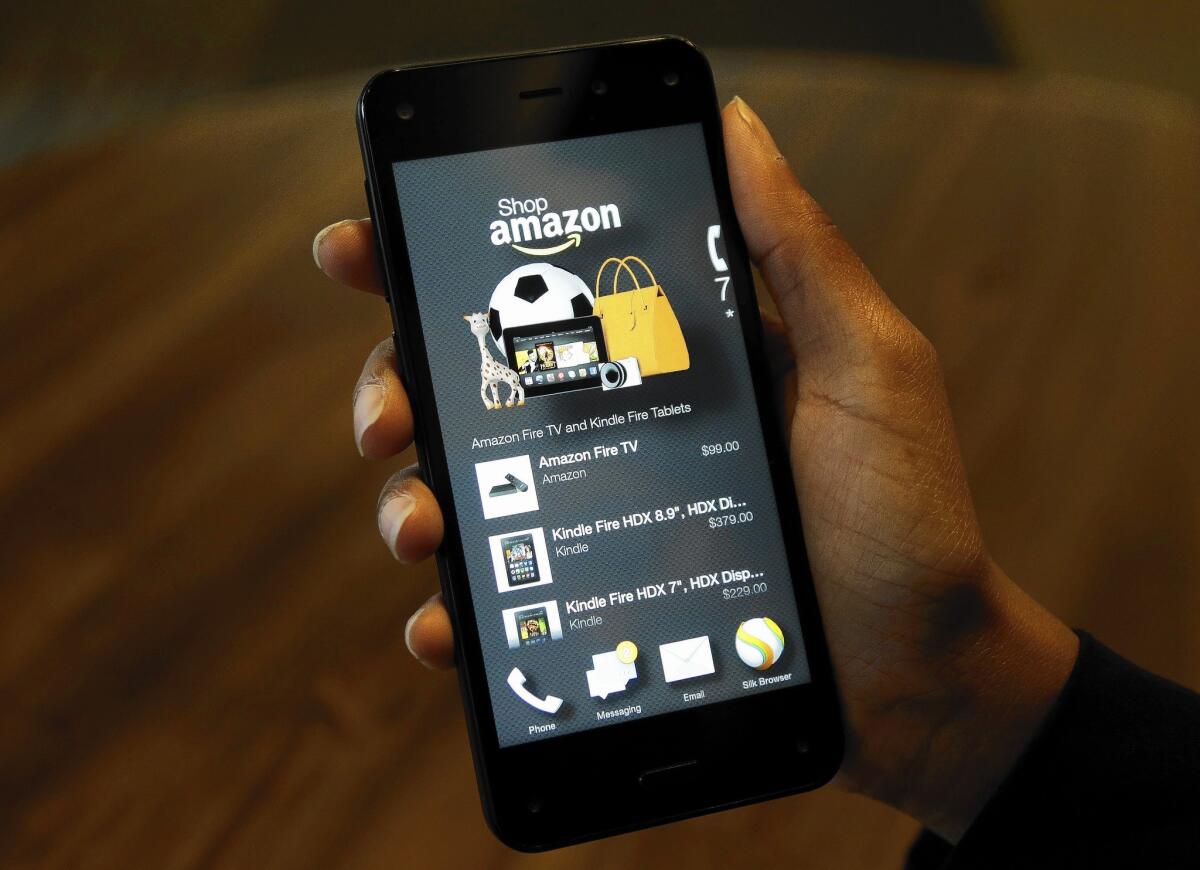FTC files suit against Amazon over accidental in-app purchases

- Share via
For most parents, seeing a random $358 charge on their credit card bill would elicit a lot of questions.
But for the parents of the 71% of children who play mobile games such as Angry Birds or Temple Run, those seemingly random charges are becoming more common as the games allegedly trick children into buying virtual goods with real-world money.
That’s why the U.S. Federal Trade Commission filed a complaint against Amazon.com on Thursday, alleging that the online retailer unlawfully billed parents millions of dollars for the mobile games’ in-app purchases inadvertently made by their kids.
In the complaint, filed in U.S. District Court in Washington state, the FTC alleges that thousands of parents — including one consumer whose daughters racked up $358 for in-game charges — fell victim to a system that allows charges without any step “that requires a password to validate payment information.”
The FTC is seeking a court order requiring Amazon to refund customers for “millions of dollars” in unauthorized charges and to ban the company from billing parents for in-app charges made by children without parental consent.
According to the complaint, many of the kid-friendly games and apps on Amazon mobile devices such as the Kindle Fire encourage children to pay for virtual in-game items with real-world money, usually connected to their parent’s credit card.
Games such as “Tap Zoo,” where children populate a virtual zoo with various animals, require kids to pay for animals and other game objects in “coins” or “stars,” some of which are paid through in-game currency and some by real-world credit card charges, the complaint said.
“We are really trying to make clear that this cardinal rule … of consumer protection applies in the mobile space,” Jessica Rich, FTC consumer protection director, said in a conference call with reporters.
Rich said Amazon had received thousands of complaints and millions of dollars in revenue from accidental app purchases.
Amazon did not return phone calls seeking comment. On July 1, in a letter to the FTC, Amazon said it has continually improved the in-app buying process since launch and already offers refunds when children make inadvertent in-app purchases.
“Pursuing litigation against a company whose practices were lawful from the outset and that already meet or exceed the requirements of the Apple consent order makes no sense,” Amazon said in the letter.
This isn’t the first time the FTC has gone after app stores for failing to provide adequate protection for parents — the regulatory body reached a deal with Apple in January for similar issues. Apple refunded about $32.5 million to parents and changed billing practices to require more stringent password protection.
Google was served with a class-action lawsuit in March from parents over unauthorized charges for in-game apps.
Apps are a rapidly growing business and could be hurt by FTC over-regulation, said Peggy Hudson, the Direct Marketing Assn.’s senior vice president of government affairs.
“Amazon reportedly has already done the right thing by enhancing its app market and providing consumer refunds, so consumers have nothing to gain and plenty to lose from the commission’s lawsuit,” she said in a statement. “Nothing will discourage future innovation faster than punishing good deeds.”
Amazon, which, according to the complaint, collects 30% of all in-app charges and has made tens of millions of dollars through general in-app purchases, did not require password certification on in-app purchases when the company launched the service in November 2011, the complaint said.
In 2012, Amazon added a password requirement for any in-app purchases exceeding $20, and in 2013 added the requirement for all in-app purchases. However, according to the FTC, changes were made slowly and the company’s refund policy was too byzantine for even the most dogged consumers.
Hudson Kingston, legal director of the Center for Digital Democracy, said the lawsuit should make more companies aware of the downsides of levying hidden costs such as in-app purchases on consumers.
“It’s better to have a customer that is happy and knowingly spending $5 on an app than having a lawsuit with the FTC,” he said.
More to Read
Inside the business of entertainment
The Wide Shot brings you news, analysis and insights on everything from streaming wars to production — and what it all means for the future.
You may occasionally receive promotional content from the Los Angeles Times.










